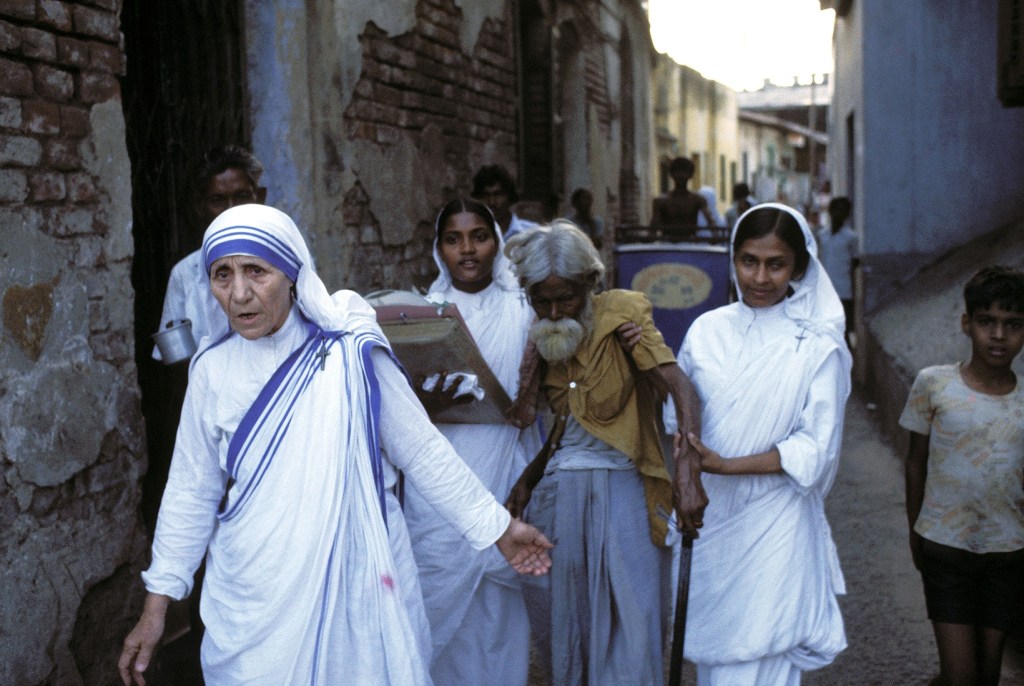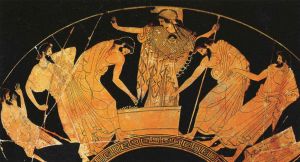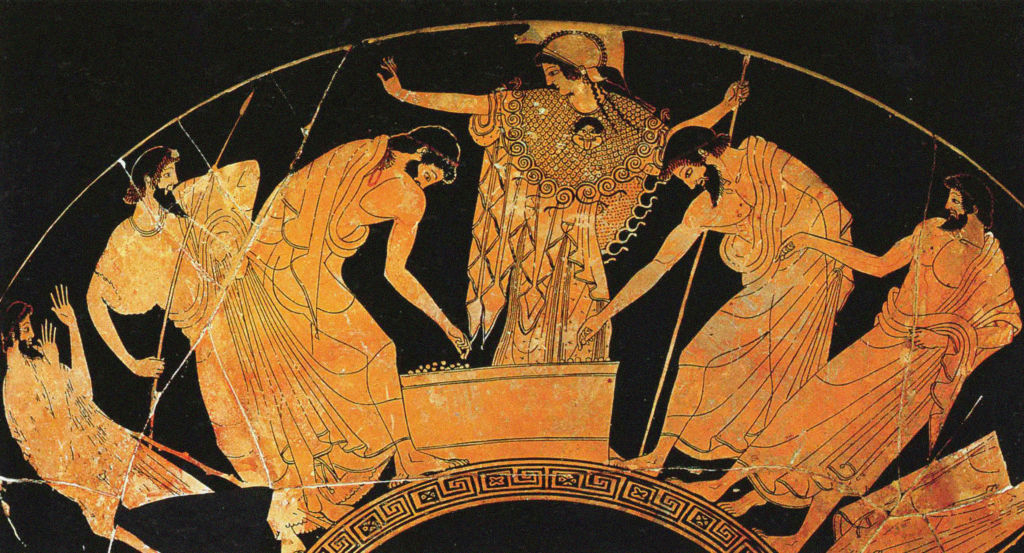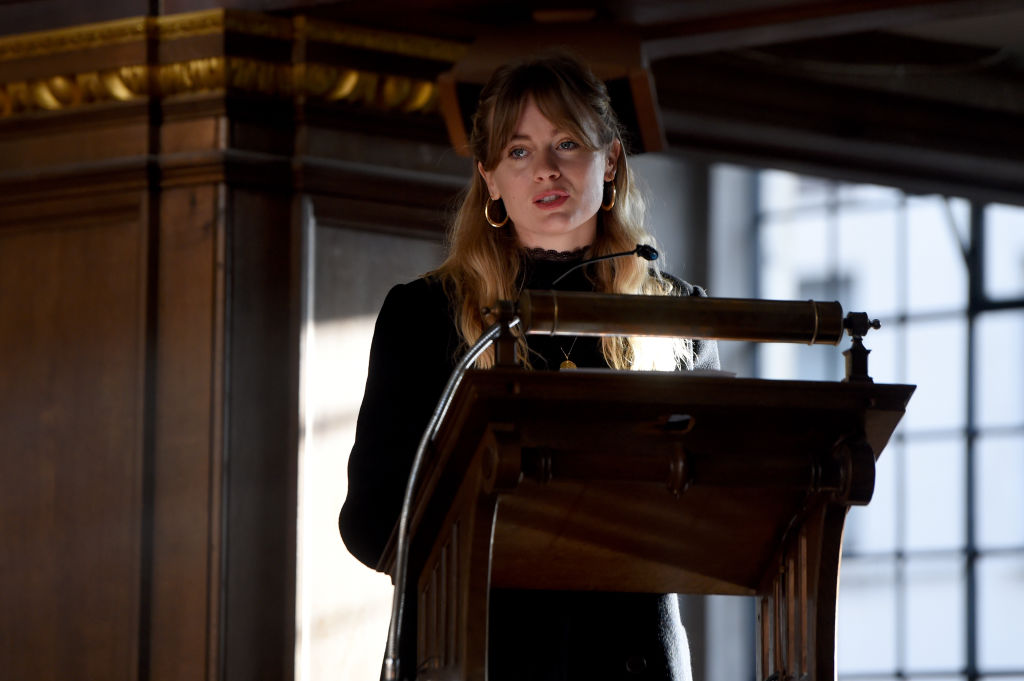Work is our new religion. There are people whose primary job is writing listicles of celebrity gossip, illustrated with gifs from the Fast & Furious franchise, who refer to being a writer as a ‘calling’. If I think about this for too long my brain simply shuts down to protect itself.
What we used to do for God we now do for our work. In a secular culture, it seems totally normal — admirable, even — to sacrifice the possibility of having a family, to give up all leisure time, to starve yourself or live on insane, totally made-up diets like intermittent fasting or paleo for the sake of your job as an Instagram beauty influencer or whatever. But to wear a habit and be celibate and fast out of a religious devotion? That must be a cult!
The bafflement that those who serve one god (engagement numbers) feel for those who serve another god (God) is present in some parts of iHeartRadio’s new series The Turning: The Sisters Who Left. Hosted by Erika Lantz, it follows the stories of nuns who served with, and eventually left, the Missionaries of Charity, the organization led by Mother Teresa. And while the lay person’s horror that a woman might take an oath of obedience to a patriarchal institution in the age of feminism, or the comparison of a millennia-old religion and tradition to a ‘cult’, definitely mars the series, ultimately the stories these women have to tell makes getting through all of that worth it.
Saint Teresa of Kolkata, still commonly referred to as Mother Teresa, may have been canonized by the Catholic church, but she’s still the subject of much speculation and criticism. Was her pursuit of asceticism simply masochism when directed at herself and sadism when demanded of her nuns? Or was there something godly in it? Did the poor suffer in her care or were their lives harder and more deprived outside of it?
There are no easy answers in this podcast, but there are some difficult but valuable conversations about vocation and devotion. These are women who took vows of service but ultimately decided that life with Mother Teresa was too hard or abusive or just not fulfilling. The former nuns talk about being deprived of sleep, comfort and food, of wide-eyed naïveté crashing hard into the reality of working with the poor and the sick.
It’s very moving to hear women talk about the moment they realized that what they thought was a calling was actually a wrong number, or the heartbreak of deciding to leave a commitment you had envisioned as lasting your whole life. It’s not the best podcast I’ve listened to lately — Lantz is truly exasperating as a host, and it’s devoid of any real context of what life in convents and in the church has done for women through history — but it’s still very rewarding.
One provocative question raised by the series is how does one re-enter and adjust to a society that you have lived apart from for so long? This is a question taken up by the long-running show Oh No, Ross and Carrie!. Co-host Ross Blocher is a former evangelical Christian who, along with his partner journalist Carrie Poppy, delve into the more credulous communities in America. They investigate and talk to UFO believers, homeopathic practitioners, religious fundamentalists, and more. But rather than the usual ‘look at all these dummies’ point of view, it’s done with real warmth and thoughtfulness.
Over the course of 10 years, they’ve covered all sorts of communities and misadventures, but recent episodes have dealt with those skeptical of the medical community. They talk to a 38-year-old woman whose religious background prevented her from being vaccinated — against anything at all — for her entire life, and they help walk her through her first coronavirus vaccine. Instead of the expected lecture on the importance of public health and the idiocy of being anti-vax, they listen to their guest as she tells funny stories of her encounters with illness as someone who was supposed to be healed by God and her struggle to reconcile her intellectual self with her belief. It’s not all anecdotal, they also bring on an immunity expert to help answer her medical questions. It’s a long episode, almost 100 minutes, but such a complicated subject deserves the full airing.
One would think — or hope — that after you years of weekly episodes, Oh No! would have run out of guests by now, but alas, that’s not really how things are working out. There’s always a new commune transforming itself into a cult or an internet forum running amok and inspiring a sensationalized murder. But if one has to leave one’s all-consuming worldview behind, the best possible outcome is probably to have smart, generous people like Ross and Carrie guiding you back into the rest of the world. Even if it’s for the sake of content.
This article was originally published in The Spectator’s UK magazine. Subscribe to the World edition here.

























